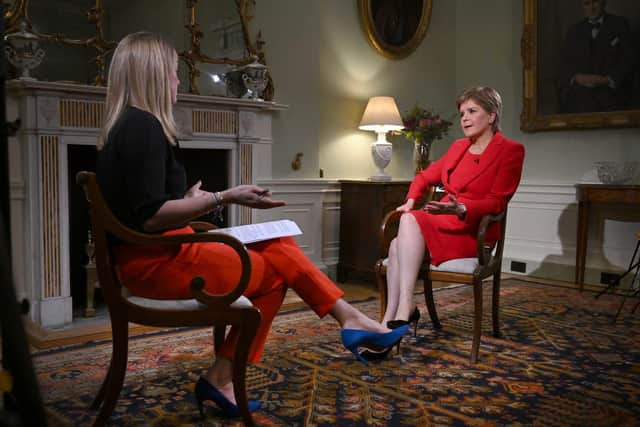Nicola Sturgeon's alcohol gaffe distracts from central question of Section 35 and gender Bill row
This article contains affiliate links. We may earn a small commission on items purchased through this article, but that does not affect our editorial judgement.
It was clumsy, not just because of the later row-back on Twitter where she confirmed she did not favour a change in the existing drinking rules, but because it was a trap neatly set by the interviewer.
Why does the legal drinking age matter when discussing transgender rights? Well, it offers opponents to gender reform an opportunity to point at the fact 16 and 17-year-olds can’t drink in the pub, but can change their gender under Scottish plans.
Advertisement
Hide AdAdvertisement
Hide AdLetting them change gender at 16 when they can’t even buy a pint! Madness, surely, and a clear overstep of the boundaries on youthful exuberance and the ‘going through phases’ that happens in the teenage years. That’s the argument.
It highlights one of the weak spots within the Gender Recognition Reform Bill that was exploited by Scottish Labour during the process of amending the legislation, during which additional safeguards were added.
But the Helen Lovejoy style ‘won’t somebody please think of the children’ is one of the most potent political arguments made against the Bill, alongside the concerns around women’s safety.
For Nicola Sturgeon to fall into the trap of comparing a relatively inconsequential legal boundary for teenagers with legally changing one’s gender allows opponents to argue the impact of the change in the law on young people has been undercooked by the Scottish Government.
In reality, 16-year-olds can drink in pubs with a meal. In Scotland, they can also vote, join the army and get married. They can change their name and they can legally consent to sex with adults regardless of their sexual orientation.


The question of what teenagers can and cannot do is one of nuance and the balance of risk against recognising that teenagers are young adults who should be provided with freedom above that of children. It is also a distraction from the central issue of whether the use of section 35 by the UK Government is a reasonable one or legally sound.
That, as with almost all questions recently around the powers available to the devolved nations, will be settled by a court, not in TV interviews.
Want to hear more from The Scotsman's politics team? Check out the latest episode of our political podcast, The Steamie.
It's available wherever you get your podcasts, including Apple Podcasts and Spotify.
Comments
Want to join the conversation? Please or to comment on this article.
